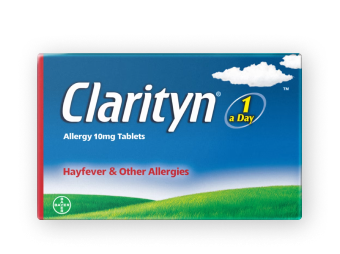Allergic rhinitis is caused by your immune system overreacting to allergens and responding to them as if they were harmful. This results in your cells releasing chemicals called histamines, which in turn cause the mucus membranes inside your nose to become swollen and produce excessive levels of mucus. The mucus traps the tiny allergen particles (as well as things like bacteria and viruses) and removes them from the body.
Usually, mucus drains harmlessly down the back of your throat, and most of the time you won’t even realise it’s happening. But if you’re suffering from an allergic reaction like rhinitis , your body produces more mucus, which is when you may start to get a runny nose or post-nasal drip.
While anyone can get an allergy at any time (including healthy adults) you’re more likely to suffer from them if you have a family history of allergies or have an existing chronic condition like asthma or eczema.
Allergic rhinitis symptoms
The most common symptoms of allergic rhinitis can often feel similar to cold symptoms. This includes:
- Nasal congestion
- Runny nose
- Post-nasal drip (the feeling of mucus running down the back of your throat)
- Sneezing
- Coughing
- Red and itchy eyes
- Itching in the roof of your mouth or throat
- Ear pain caused by irritation in the nose and sinuses
If you’re concerned that you’re displaying the symptoms of allergic rhinitis, you can talk to your pharmacist, who should be able to provide you with a diagnosis and possible treatments to help ease your symptoms.
For most people, their symptoms are mild and they do not pose too much harm to their overall health and wellbeing. However, some people may experience more severe symptoms which can prevent them from getting enough sleep or get in the way of everyday life (for example, struggling to concentrate at work or school).
In some cases, allergic rhinitis can lead to more painful issues such as sinusitis (a painful infection in the sinuses), nasal polyps or middle ear infections.
That is why it’s important to seek further medical attention or talk to your doctor if your symptoms are severe or prolonged, not responding to treatment (see below), affecting your everyday life or you are unsure of the causes.
Common causes of allergic rhinitis
Allergic rhinitis can be triggered by a number of allergens, and is typically caused when airborne allergens like pollen or dust are inhaled.
Some of the most common triggers of allergic rhinitis are:
- Pollen like grass, weed or tree pollen ( hayfever )
- Dander (skin flakes) from animals and pets
- Dust and dust mites
- Mould
Allergic rhinitis can be seasonal, which means symptoms appear at specific times of year, or perennial, where you can get symptoms all year round. Seasonal allergic rhinitis is usually triggered by outdoor allergens like pollen, especially when the pollen count is at its highest in spring, summer and early autumn. Perennial allergic rhinitis is more likely to be triggered by indoor allergens like pet dander or dust mites.
Allergic rhinitis cures and treatments
Like many allergies, if you suffer from allergic rhinitis , there is no permanent cure. However, there are a range of treatments and prevention measures you can take to alleviate your symptoms or to help prevent them from happening in the first place.
Some ways you can prevent allergic rhinitis are:
- Take care to regularly dust and hoover your home, especially if you have pets, to kill dust mites and remove animal fur/dander.
- If you’re allergic to dust mites, regularly wash bedding in hot water and use anti-allergy barrier covers on pillows, duvets and mattresses.
- Keep pets out of the bedroom and off of soft furnishings like sofas if you have a pet allergy.
- Don’t touch or rub your nose when suffering from allergic rhinitis to prevent worsening symptoms.
- Make sure you’re regularly washing your hands, especially after being outside or coming into contact with an allergen . Take a shower after returning inside during pollen season.
- Wear wraparound sunglasses during pollen season to help prevent pollen from getting into your eyes.
- Stay indoors during pollen season and keep the windows shut.
- Apply a little bit of petroleum jelly to the inside of your nostrils when you go outside during pollen season. The jelly traps the pollen, preventing it from getting into your body.
- Try to avoid the allergens that trigger your allergic rhinitis (for example, avoiding animals if you are allergic to animal dander).
If you’re already suffering from the symptoms of allergic rhinitis, you can also try to manage them in the following ways:
- Use a saltwater nasal spray or solution to rinse the inside of your nose
- Using eye drops to relieve itchy eyes
- Take antihistamines like loratadine or cetirizine for relief from the symptoms of allergic rhinitis
- Use nasal sprays like Clarinaze Allergy Control Nasal Spray to relieve nasal symptoms like a blocked nose
Antihistamines are a kind of medication designed to block the release of histamines (see above), helping to prevent your body from having an allergic reaction. They can be purchased over the counter in shops, supermarkets and pharmacies and you don’t need a prescription from your doctor to buy them.
Clarityn Allergy Tablets contain the antihistamine loratadine, which is non-drowsy in the majority of users for 24-hour relief from the symptoms of allergic rhinitis. It effectively relieves the symptoms caused by over 150 airborne allergens such as pollen, dust and pet dander.





